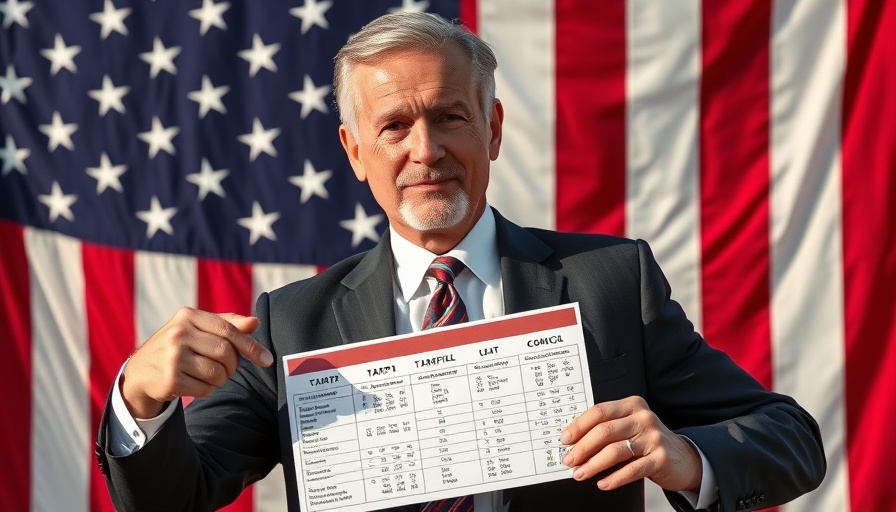
The Future of AI Policy and Copyright: A Closer Look
The future of artificial intelligence (AI) in the United States is undergoing significant scrutiny as changes in federal leadership emerge. With President Trump's recent actions to reshape AI policy initiated by former President Biden, a range of stakeholders are calling for improved regulations that balance innovation with protection for creators. The implications of these shifts, especially concerning copyright and tariffs, have raised concerns among many innovators and professionals in the tech community.
AI Exploitation or Innovation? The Copyright Debate
Many voices in the current dialogue around AI and copyright assert that the use of AI technologies often exploits the works of creative individuals without proper compensation. Artists, writers, and musicians worry about the lack of clear regulations governing how their intellectual property is utilized in training AI models. This led to petitions urging the Trump administration to bolster copyright protections significantly, ensuring that creatives can engage in this evolving landscape without fear of losing control over their work.
In contrast, leading venture capital firms like Andreessen Horowitz warn that overregulation could stifle AI development. They argue that the push for stringent copyright laws might hinder innovation, posing potential roadblocks to the advancement of AI technology. This tension highlights the delicate balance policymakers must maintain as they draft new regulations.
AI Tariffs: Impacts on Domestic Development
Another focal point in the public comments to the White House has been the effects of tariffs on foreign goods, particularly in the infrastructure needed for AI development. The Data Center Coalition emphasized that current tariffs could limit both investment and the growth potential for AI technologies in the U.S.
As the reliance on international components for AI infrastructure continues to grow, the Information Technology Industry Council has called for an approach that protects local industries while being mindful of escalating trade conflicts. This is especially relevant as the industry grapples with how to safeguard jobs and foster innovation simultaneously.
Public Opinion: Ideology and the Role of AI Censorship
Interestingly, only a few comments addressed the contentious topic of “AI censorship,” which has gained traction among the Trump administration's closest advisors. High-profile figures like Elon Musk have raised concerns that popular AI chatbots manipulate or underreport conservative viewpoints. This belief underscores a broader distrust among certain factions regarding the programming biases in AI systems.
The prevalence of bias in AI technology is an ongoing issue. Musk’s own venture into AI seeks to develop models that avoid alignment with specific political ideologies, yet challenges remain in achieving this level of impartiality.
Engaging with AI Policy: Who Influences the Future?
As President Trump builds a team focused on AI policy, including the recent appointment of Michael Kratsios as head of the Office of Science and Technology Policy, the future of AI regulation will rely heavily on input from various stakeholders. Balancing the desires of tech firms, the creative community, and federal goals will be critical.
Societal Impact: Why This Discussion Matters
The ongoing discussions surrounding AI policy are not merely academic; they have real implications for jobs, economics, and the way society might interact with technology moving forward. As AI becomes more integrated into daily life, understanding these policies and advocating for balanced approaches will be vital for protecting interests across the board.
In summary, the current changes in AI policy in the U.S. are pivotal, with copyright issues, tariffs, and censorship debates taking center stage. As responsibilities shift from one administration to another, the insights from public comments reflect a pressing need for cohesive regulations that will sustain the innovation necessary for future growth in AI technologies.
 Add Row
Add Row  Add
Add 



Write A Comment